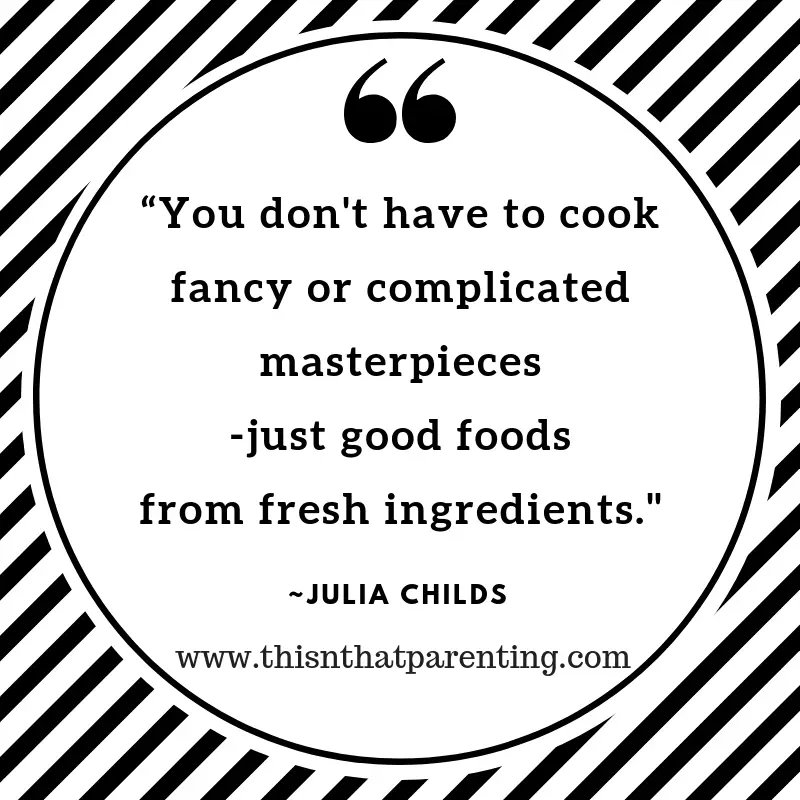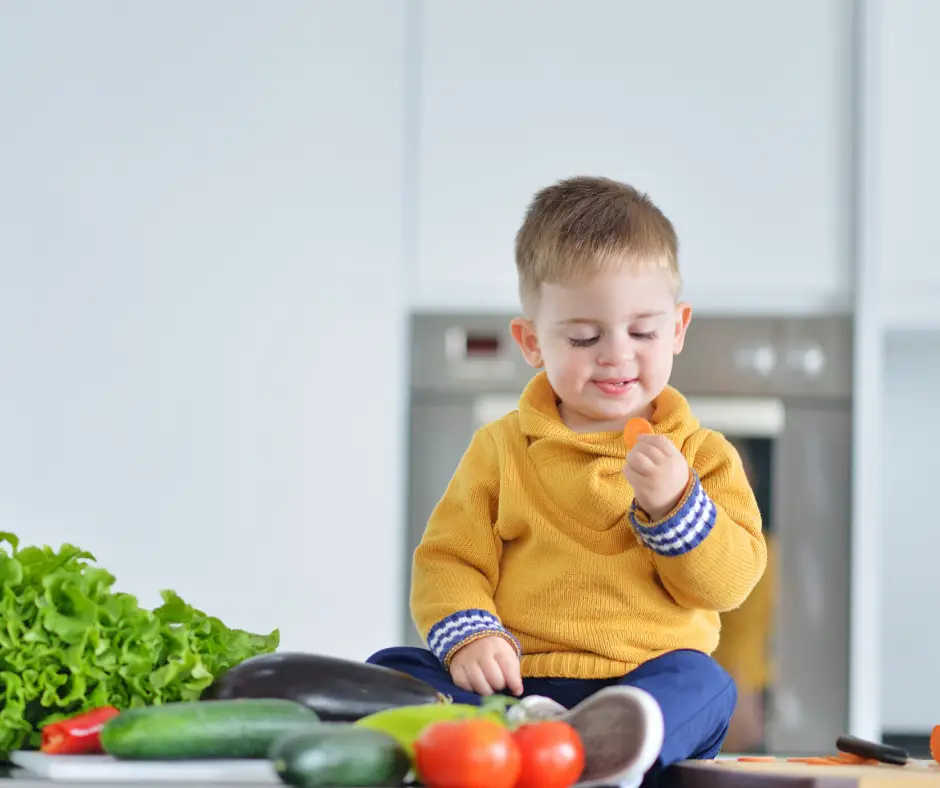How to Get Kids to Love Their Veggies
We would all like to live in a world where our kids love and enjoy their veggies and we don’t dread dinner times anymore, wouldn’t we?
But the reality is often quite different. The gap that needs to be bridged, from where we are today, to where we want to be when our kids make choices of their own, is different for every mother and every family. The goal is most likely the same – teach our kids to enjoy healthy eating so they can stay healthy and, in turn, look after their families when they grow up.
We all know about the health crisis in the world. Everyone is affected, just to different degrees. On the human level, a sick population means a bleak future for all of us. On your family level unhealthiness leads from cranky kids and clogged toilets to parents feeling guilty and stressed about wasting food and not being able to get their kids to eat right.
Regardless of the stage you and your kids are in right now – the ‘beige stage’ or adventurous eaters, applying the following 5 tips will guide you through the process of getting your child to love their veggies. The important things to focus on are taking it easy, lowering your expectations, and having fun and building a strong connection with your kids.
How can we make the process of introducing our kids to veggies more positive and engaging?
If you want your kids to eat and love veggies, you have to be the one modeling that.
How often do YOU try new foods?
What is your “veggie story”? Are you eating a variety of healthy foods, namely vegetables? Do you eat processed foods at all?
Ideally, you should take care of yourself way before you have a baby? by eating right and giving your baby a chance to grow and get the best nutrition from day one. The next big chance you get is when the baby starts to eat solids.
Of course, kids don’t always like new foods you make, and that can be frustrating. One very important thing to remember is to avoid power a struggle whenever possible. Who likes to have things imposed on you or pushed down your throat, even when they are good for us? No one.
It is a process
Start with exposure to veggies and low expectations of what you expect them to try. You want to patiently keep yourself and your child as comfortable as possible under the circumstances.
One very important thing to mention here – there are cases of picky eaters, and there are cases of a feeding disorder. If your kids are very specific about the color, brand, presentation and so on, and eat limited foods, you might want to talk to your healthcare provider. All those behaviors normally would NOT go away by themselves. There are also doctors who specialize in these topics and educate parents online and through their books.
Growing food and making it is great if we want kids to own their part of this process and up their self-esteem. Cooking together is wonderful with older kids who can follow instructions. A good friend of mine orders ingredients from a local delivery service and enjoys making gourmet dinners a couple of times a month with her teenage daughter.
There are tons of games you can play to introduce veggies into your kids’ diet, and you can research others as well.
Often we assume that we know why kids don’t eat certain foods, or we just think “they don’t like it”. At the same time, by changing the texture, taste, or way the food is served, we can bring more foods into our kids’ menu.
Talk to your child about the foods they like and dislike. Let them know their opinion matters.
I always ask my kids what they liked about a dish and what they didn’t. I believe those discussions develop their ability to express themselves as well.
One of my most cherished moments was the day when my girls got back from school and we started chatting and making a salad together. They had told me before that they liked all the veggies I usually put in, just they wanted smaller bites. So, we made a huge batch of the salad in smaller bites, took the salad bowl and our forks to the deck and sat there in the sunshine munching and talking about the day.
Since I have four kids, it is not easy to have personal time with every one of them. Prepping dinner together is my way to have that one-on-one with them. I also find it a useful distraction tool when they get bored or start fighting – then they must come and help me in the kitchen. Even if they don’t feel like helping, at least they stop fighting?.
Educate them.
I always tell new facts (or repeat old ones) to my kids about why we need to eat healthily. I try not to make it into a lecture though. This approach alone will not do, and I know of only one 5-year-old who asks his mother to “give him healthy food”. There might be more of such little conscious ones, but I am yet to meet them.
My 7 and 8-year-olds can now see the difference in their behavior and mood when they eat sweets. And since I’ve been using another trick – I don’t use processed sugar and always reduce its amount for my recipes – last time I brought a cupcake from the bakery, my kids said “it was too sweet” which was music to my ears.
My husband and I always mention “food facts” that kids can understand and relate to, watch videos and so on. We try to “market” healthy foods on a level that kids can comprehend. Sometimes we pick books at our local library – the last one was called “The veggies we eat”.
It is very hard work to make your meals as nutritious as possible and to get your kids to eat them. So sometimes I just escape the fight. How – I tell you in my last tip:
Hide them!
Yes, saying this doesn’t feel right because I like to be honest and transparent with my kids. Yet they eat more veggies than they know.
I’ve devised my own method and I hide veggies that would be hard for me to persuade them to eat – in blended soups, which one of my daughters calls, “Splendid soups”. My always well-received potato and leek soup is a leek-onion-cauliflower-zucchini (keep to the color, right?) and a little bit of potato soup. I also add nutritional greens to their smoothies. I make snacks like butternut squash loaves or brownies. Yes, some things don’t land well. Some do. My kids don’t like cauliflower but love it as a pizza crust (this one they know about and are even proud of eating it).
Well, we do our best, right? The best we can for now.
Call to Action
To summarize, I suggest that you find a starting point and move from there. Our families are in our unique spot with veggies, and that’s where we act from.
Some veggies your kids will never like – I never really took to squash, and my son will not eat avocado.
Kids constantly change their preferences (it’s painful, I admit!) I just substitute the ones they won’t eat for sure with something else. If I model enjoying my veggies – like Brussel sprouts – my kids will receive the exposure. Palates develop and taste change, and this is all part of the process.
Doctors say we need to be introduced to a certain food about 10 times before we really make our mind whether we like it or not. Any shift is good. If your child will eat a certain veggie only with Parmesan, then I say, it’s good! A few years ago, my kids would eat spinach only in Greek spanakopita. I thought them eating spinach that way was a good shift, although I was trying to catch the gluten-free train at that time. Look at the bright side!
I know teenagers who usually do not eat kale but love it in Kale Caesar Salad! If you are just starting out teaching your kids to eat veggies, shifting to less processed and more home-cooked meals is a great idea! It might seem handy for a busy working parent to buy packaged meals and snacks. But we will all pay for that greatly in the future. Why not start talking small doable steps now? You are the one who holds the purchasing power in your house – you can start making changes every day! You will love the results. I promise.
Want More On Kids Health?
- Kids’ Pooping Problems: 5 Ways To Ensure Your Child Is Regular
- How To Get Kids To Love Their Veggies
- Simple Ways To Make Sure The Foods You Feed Your Family Are Safe And Healthy
- Lighting: How It Affects Your Child Physically, Mentally, And Academically
- Growing Pains: 9 Remedies To Help Your Child Overcome Them
- The Sunscreen Debate: Chemical Filters vs. Mineral Filters
- This Safety Measure Could Save Your Child from the ER or WORSE!
- Simple Ways to Advocate for Your Child in the Healthcare System

This is a guest post by Viktoriya Gilbey. Viktoriya Gilbey is a health coach and a mother of four wonderful and sometimes picky eaters. She helps busy professional women struggling with finding time to model healthy eating for their kids. Viktoriya teaches families how to eat in a way that’s most nutritious. She is able to train you to do this in an enjoyable as well as easy on time and budget.
You can sign up for Viktoriya’s 5 Step Road Map to Your Health here. You can join the MamaMade Movement here. MamaMade is a growing movement for all values-driven moms. Moms who want to create a healthy family culture and help their kids thrive in life! You are your own MAMAMADE!
Watch My Interview With Viktoriya Gilbey, Creator of the MamaMade Movement
I would love for you to comment and tell us some ways you are intentional about implementing healthy choices into your family culture. This is an ever-developing process for our children. The more ideas we have in our toolkit, the better off we are.








